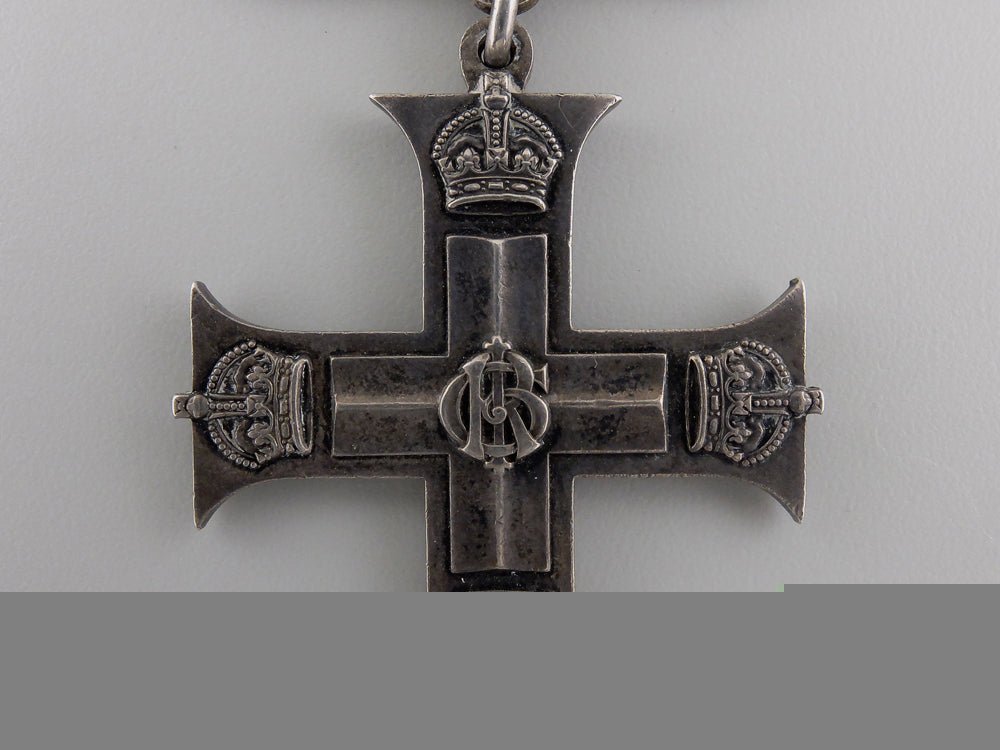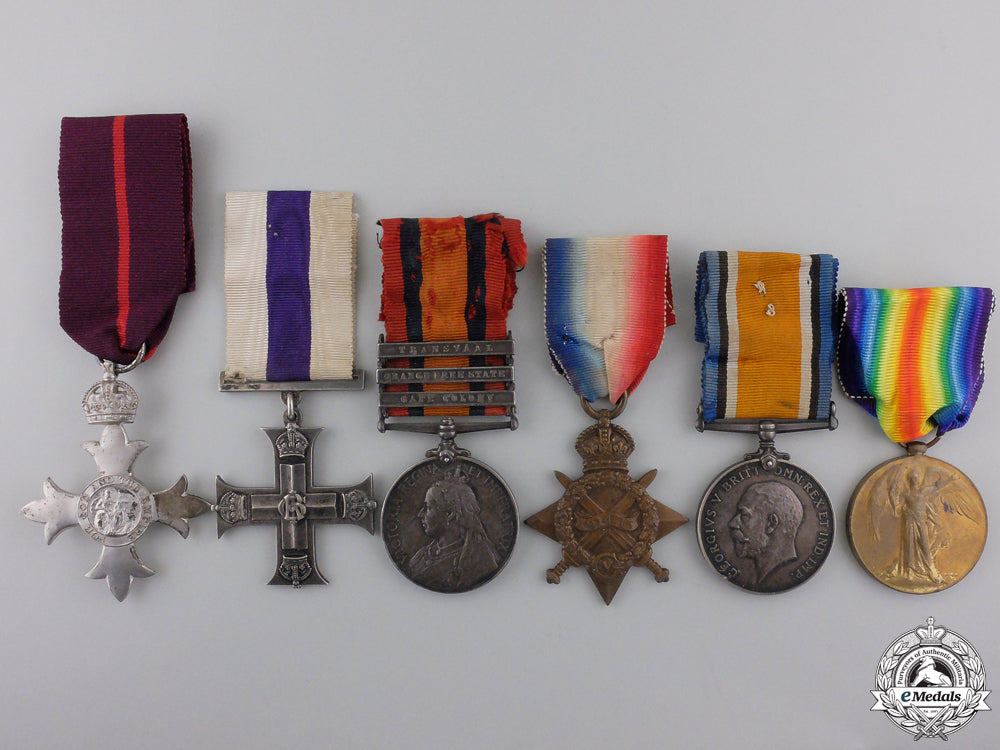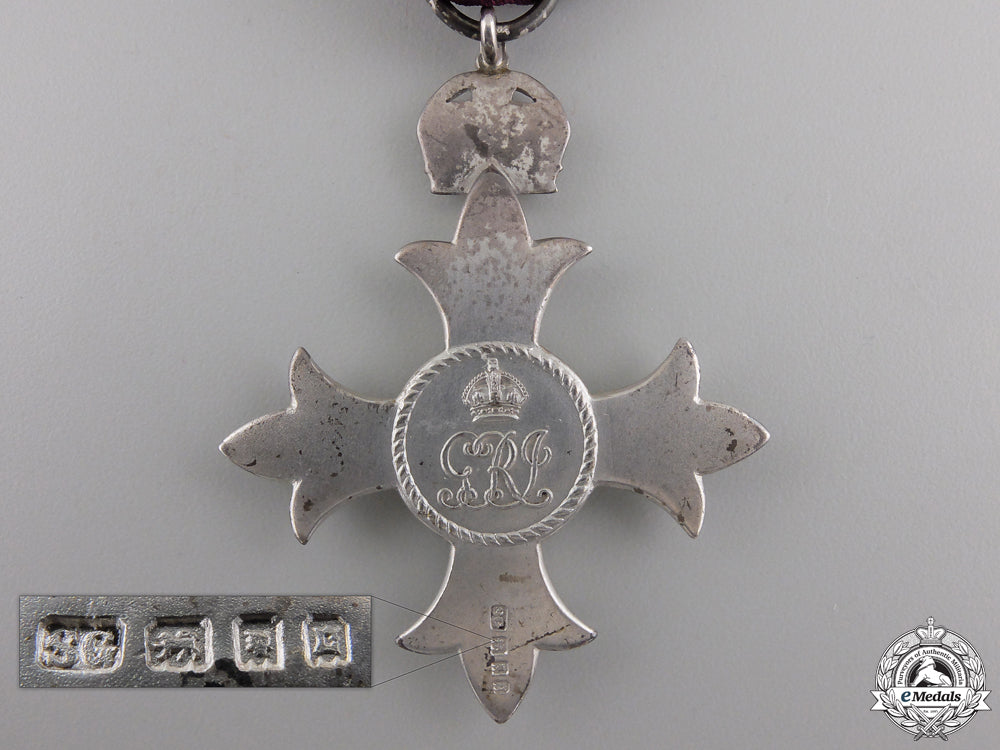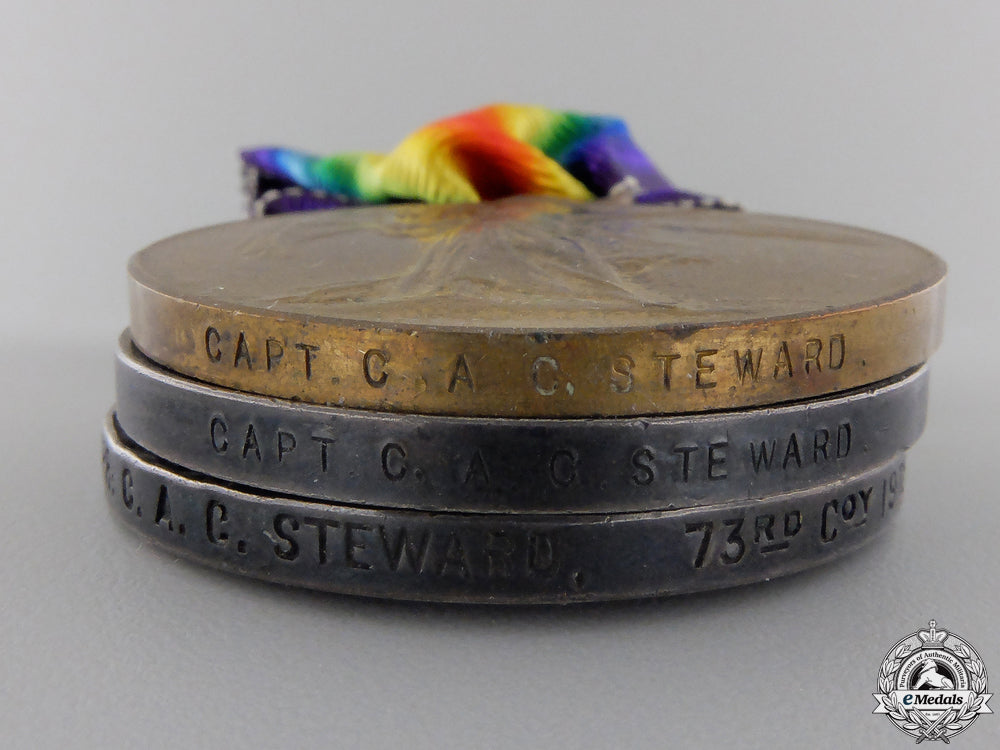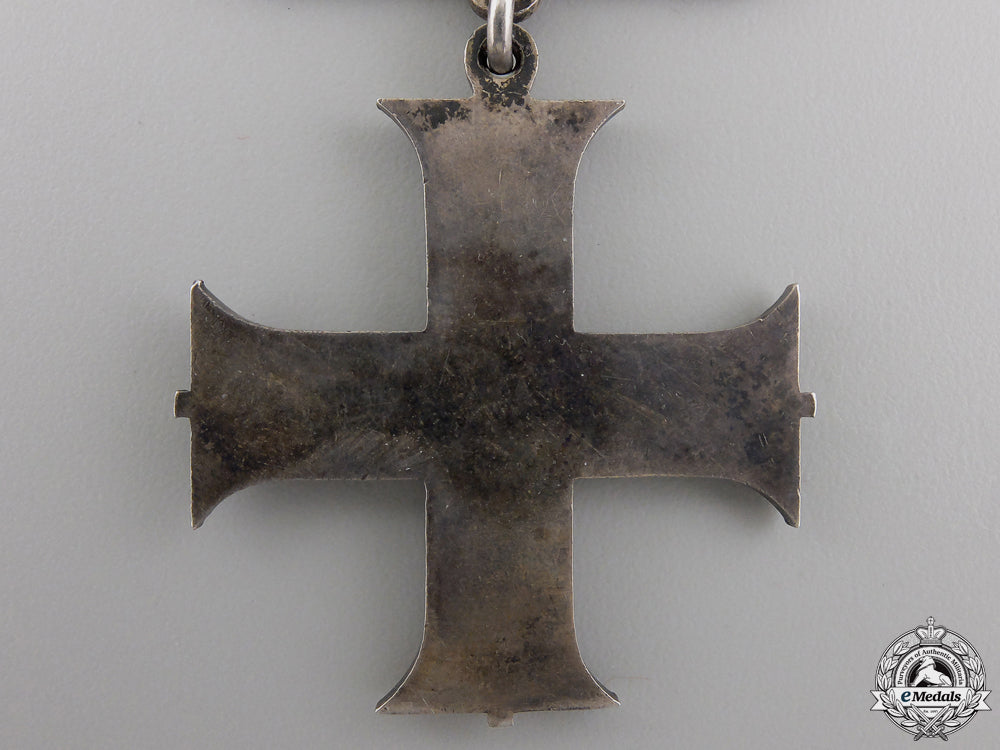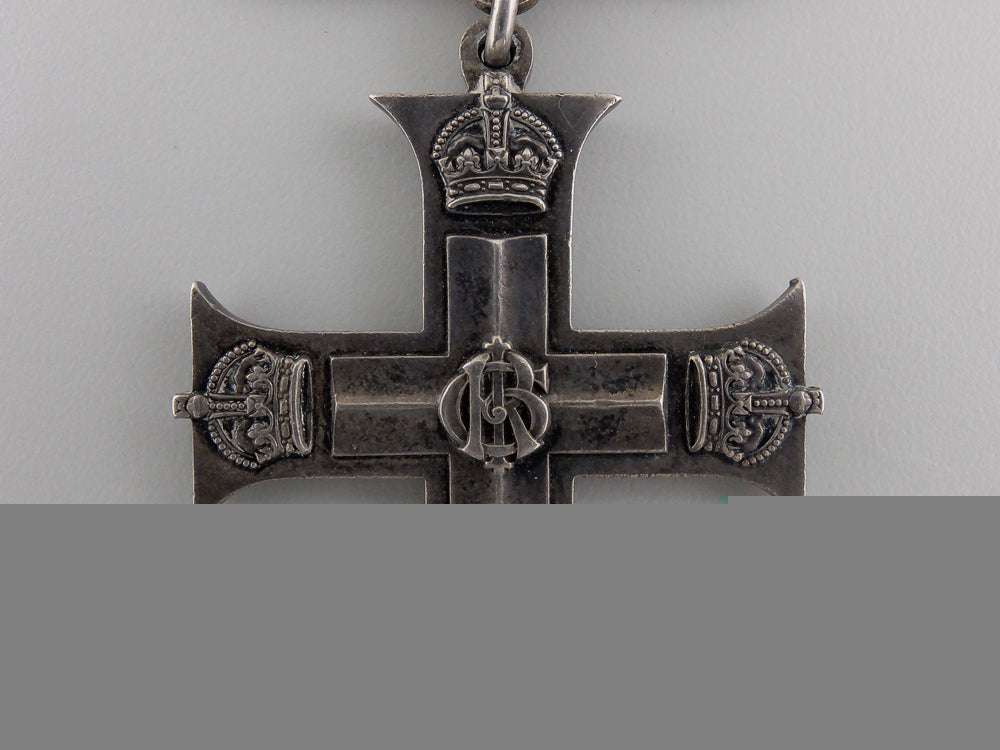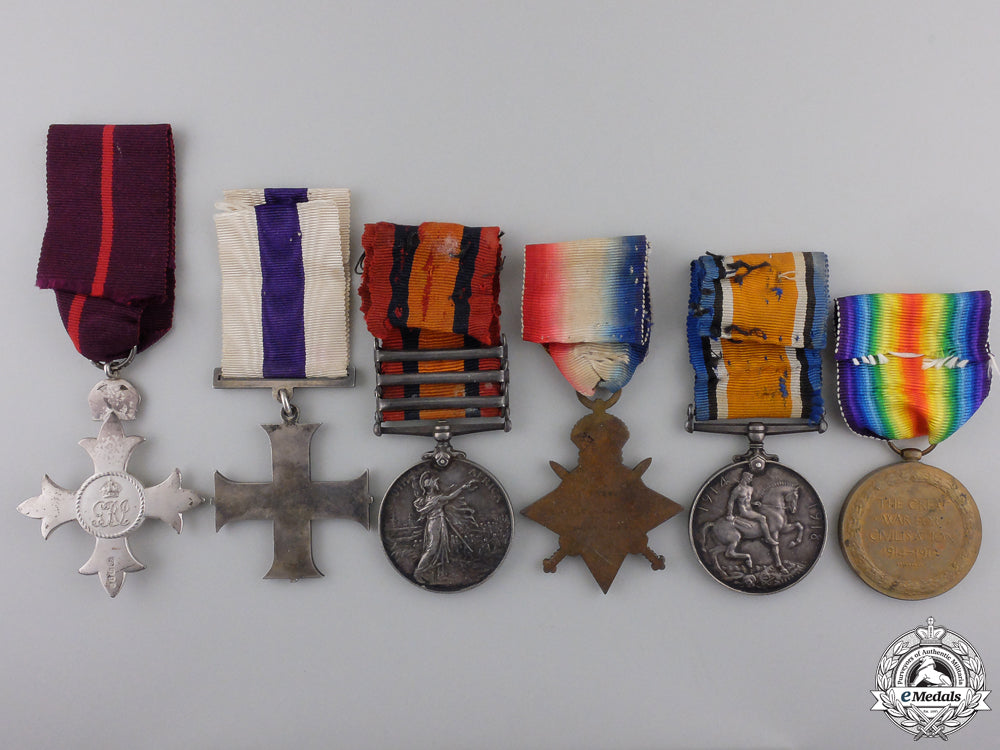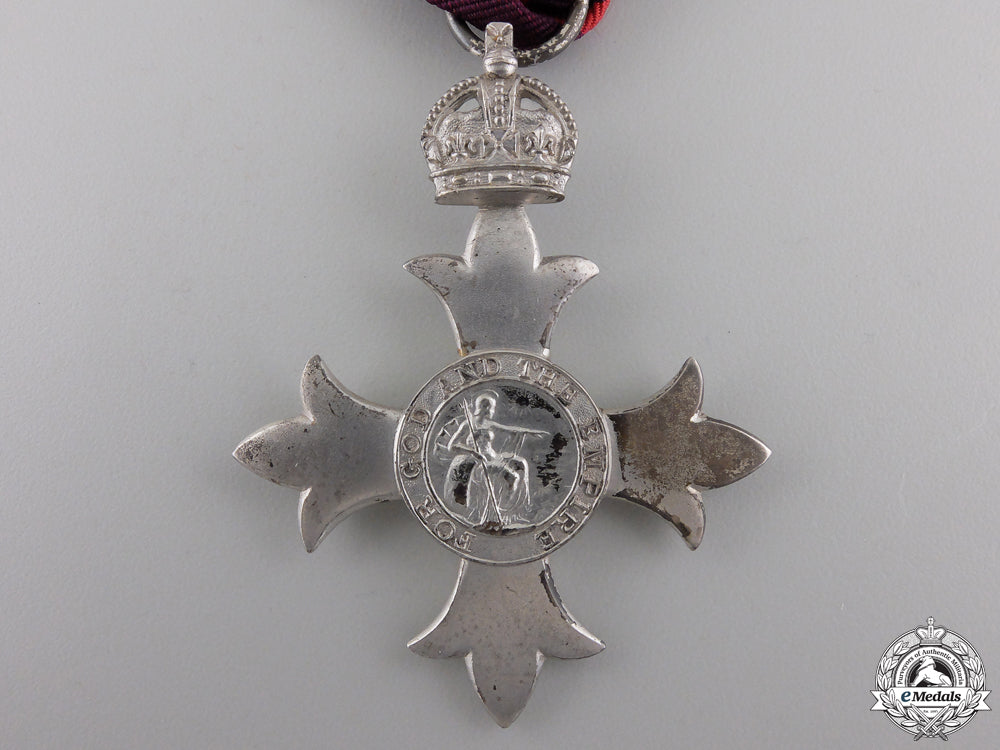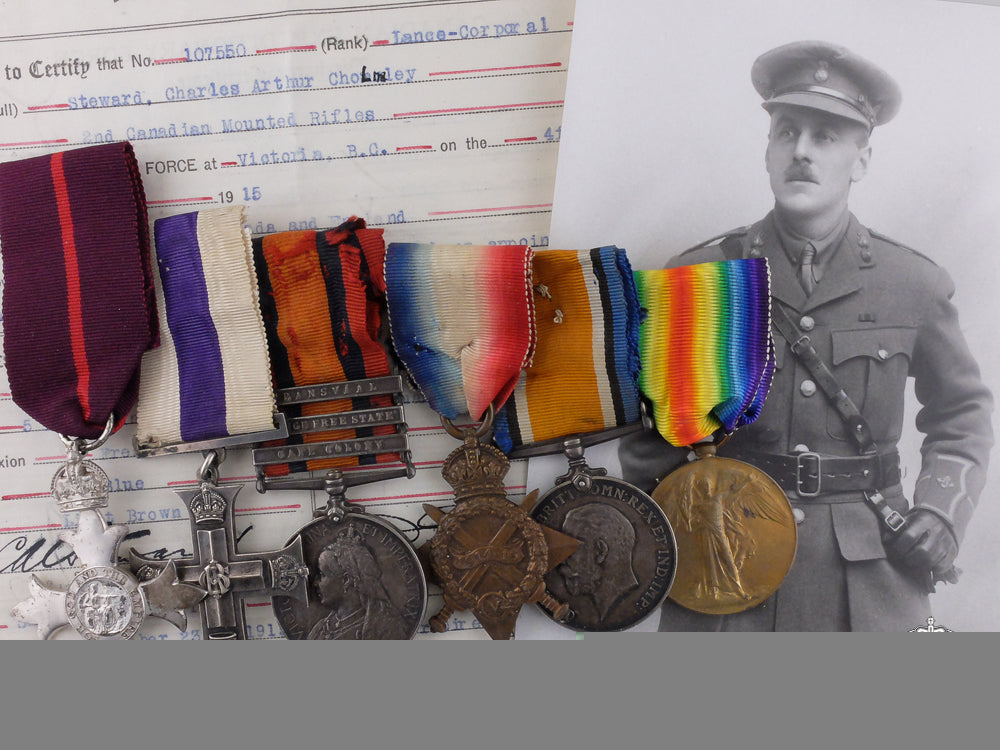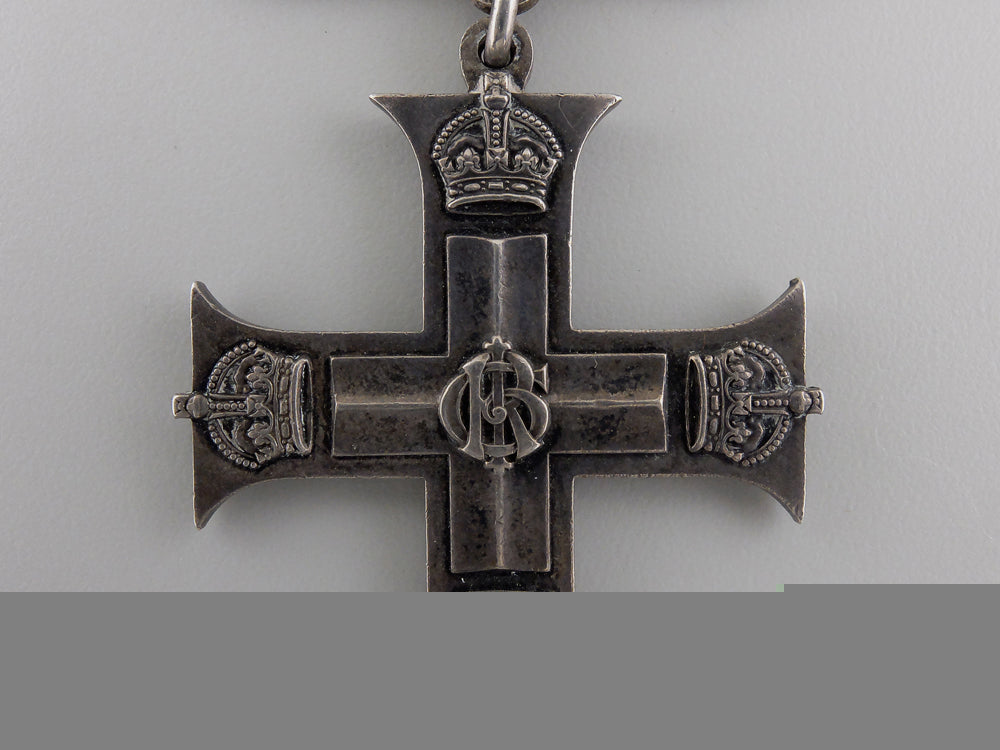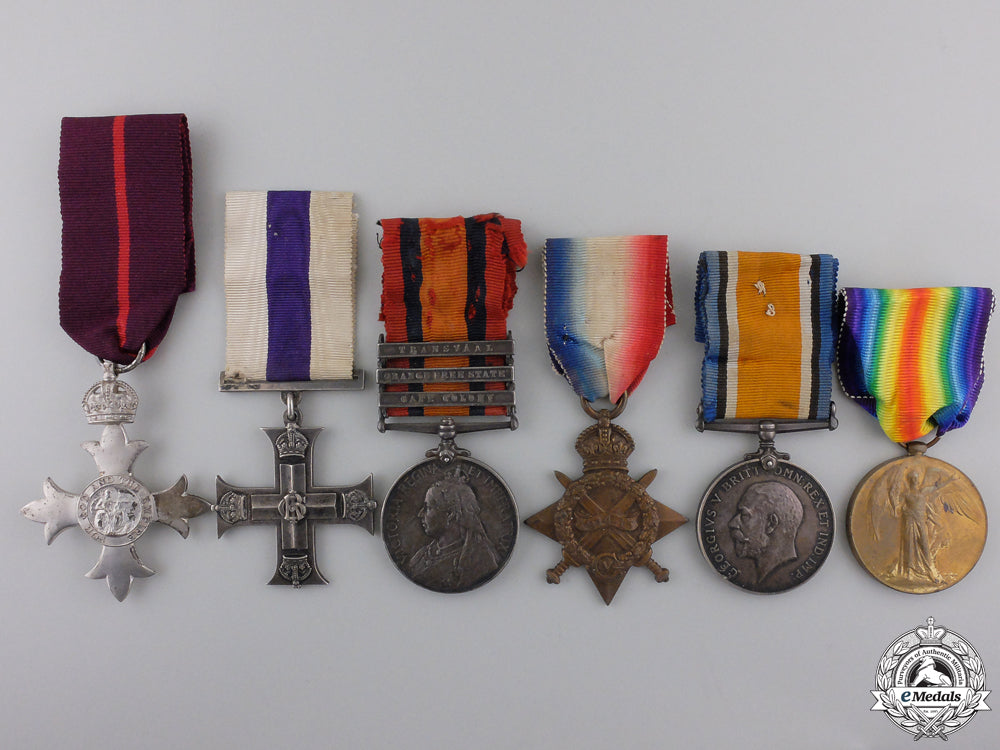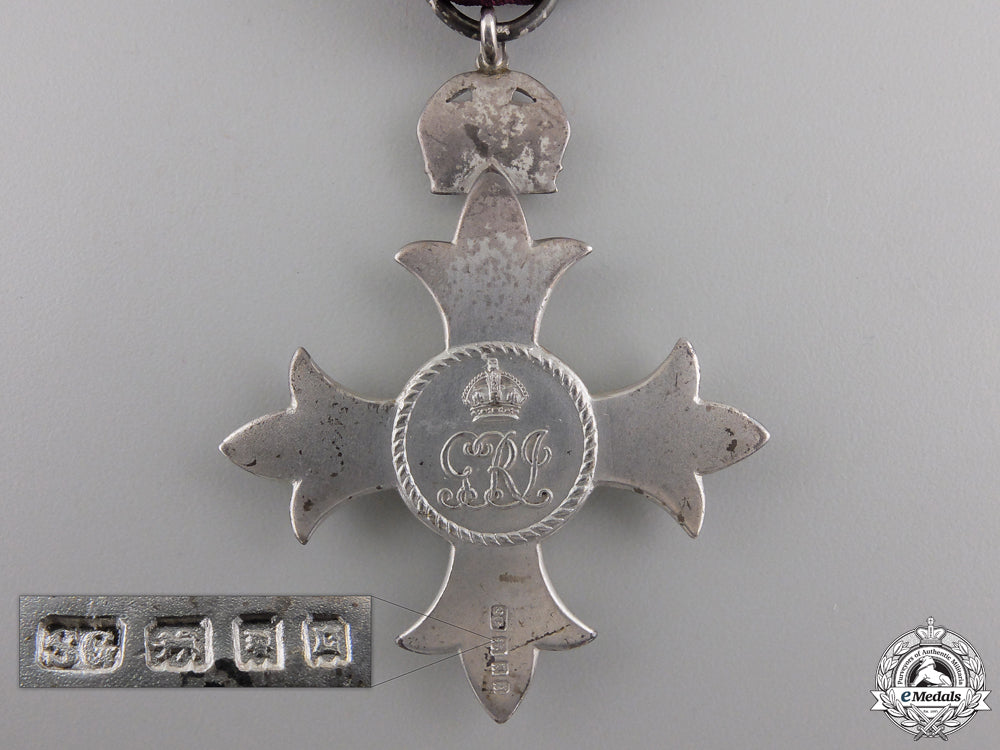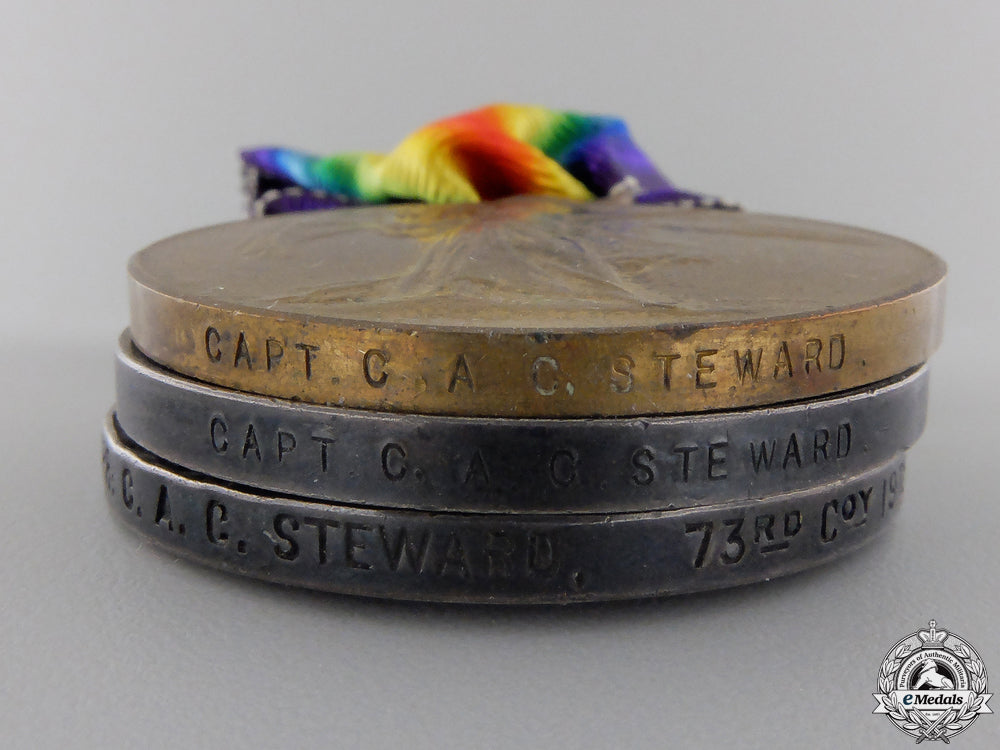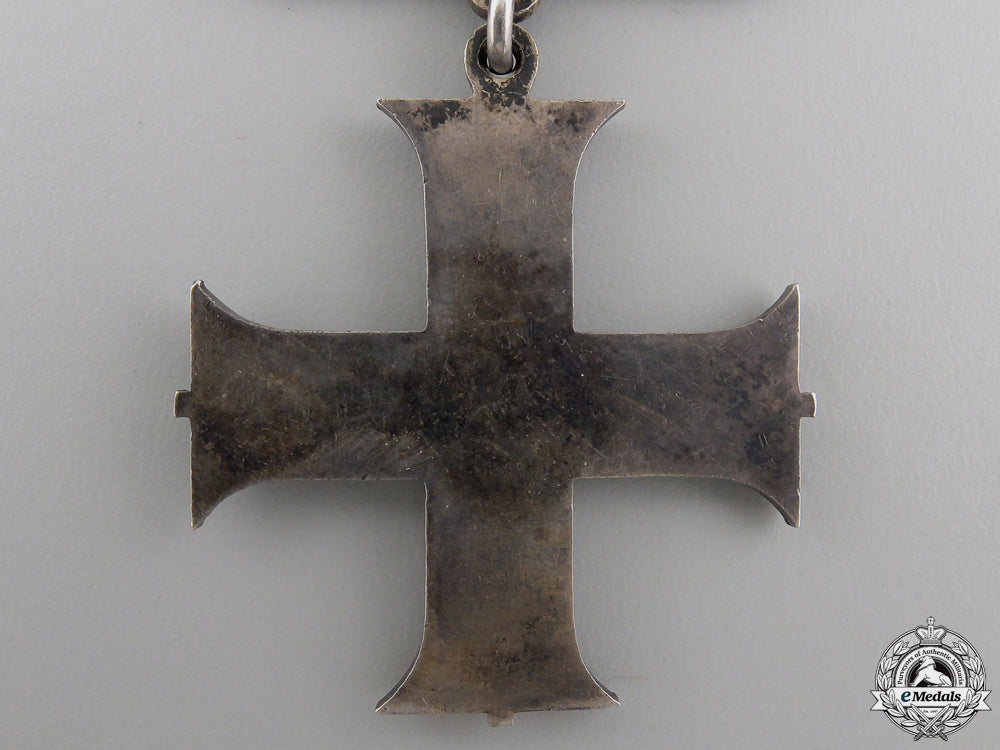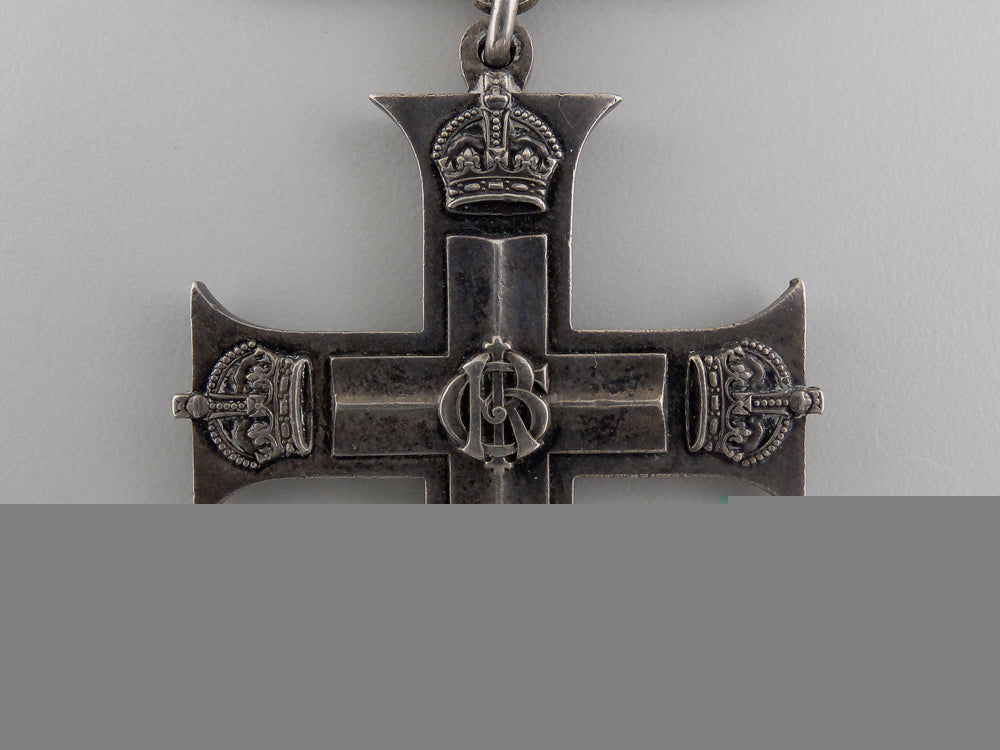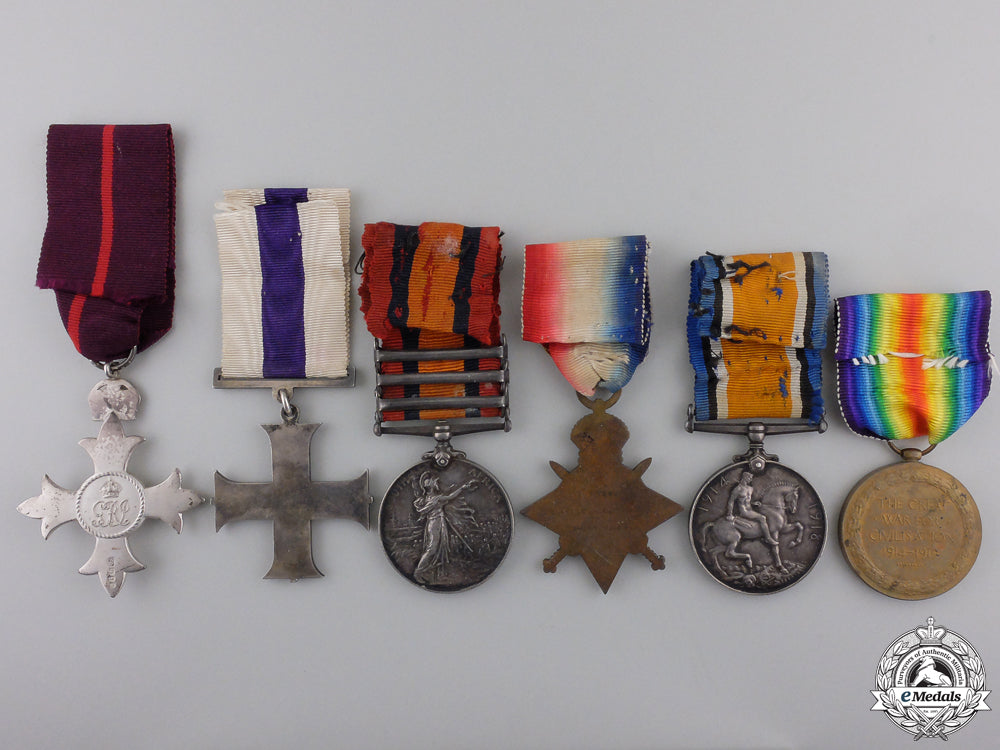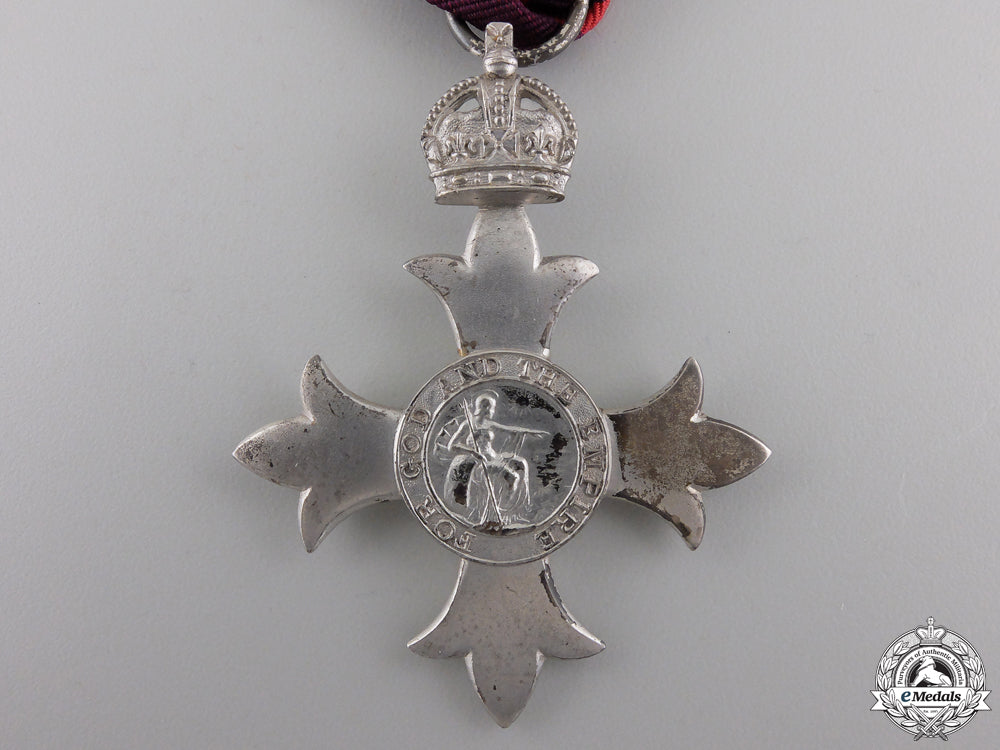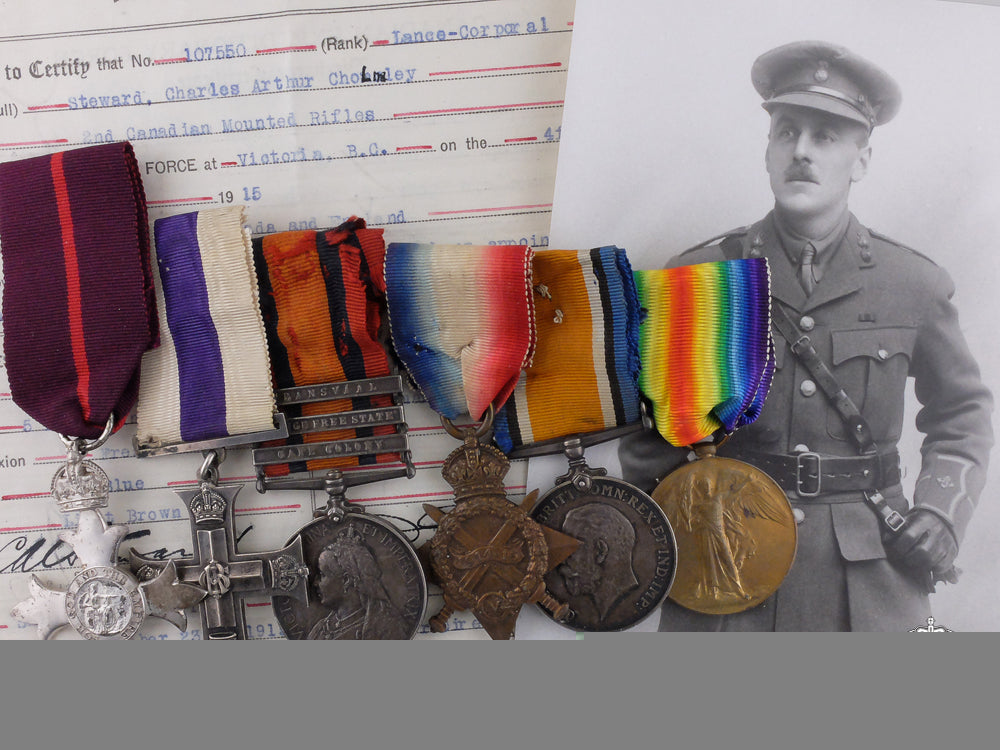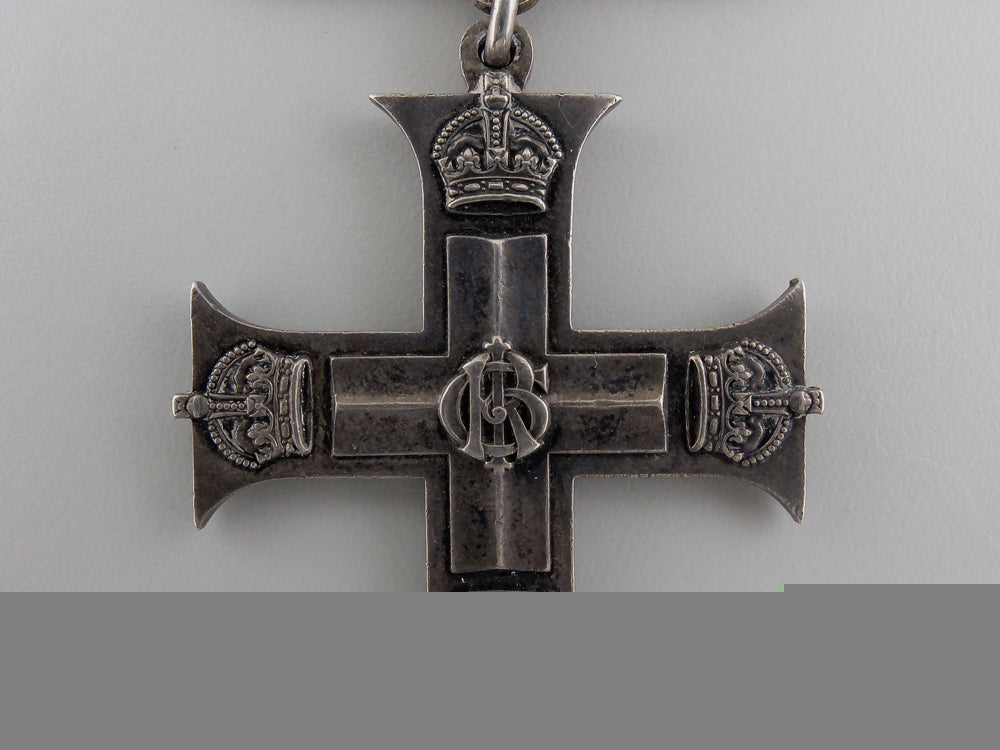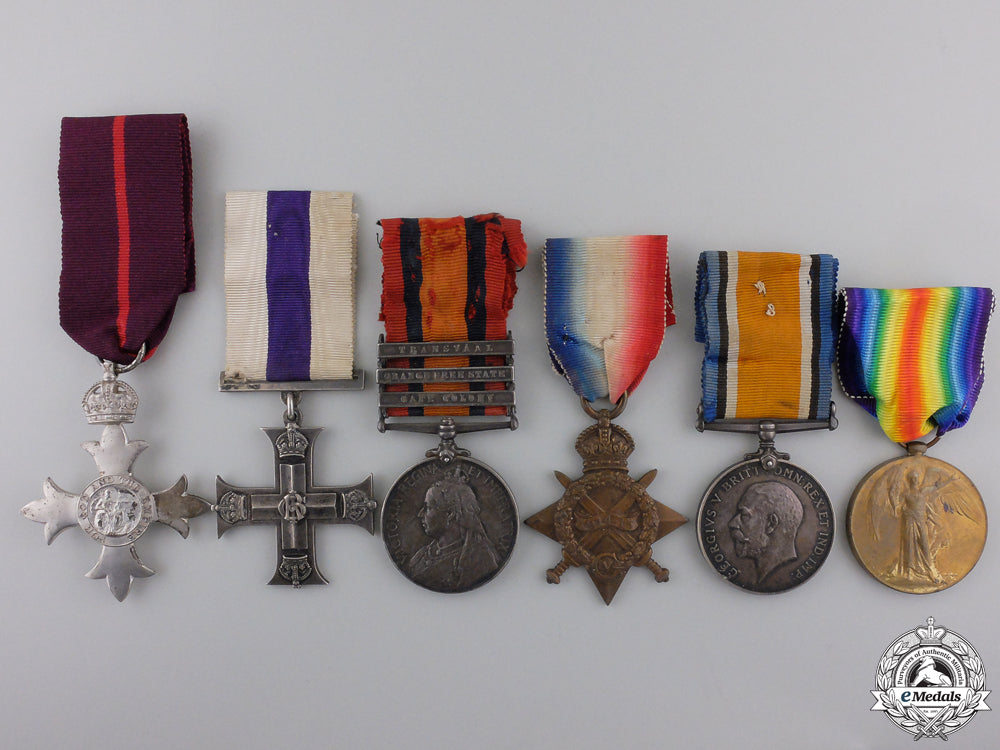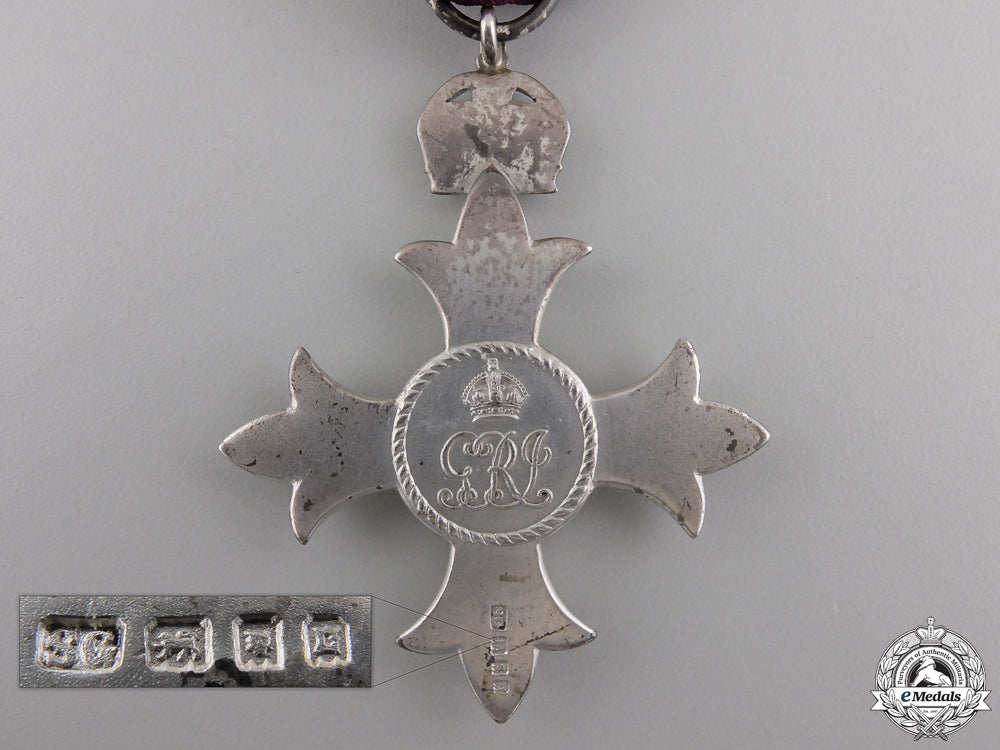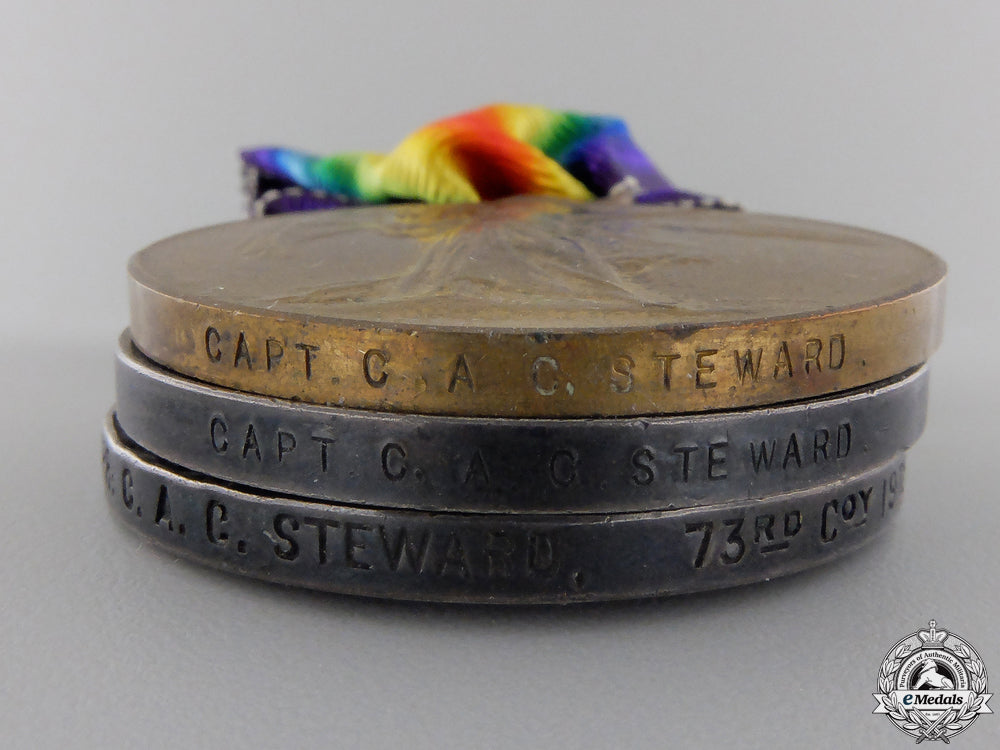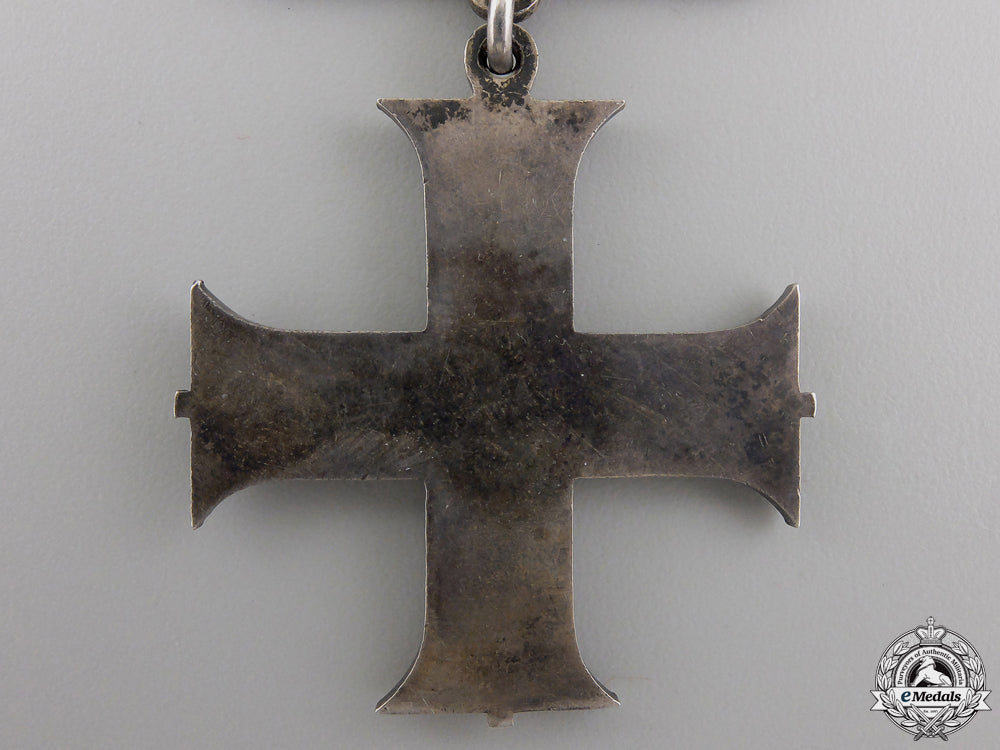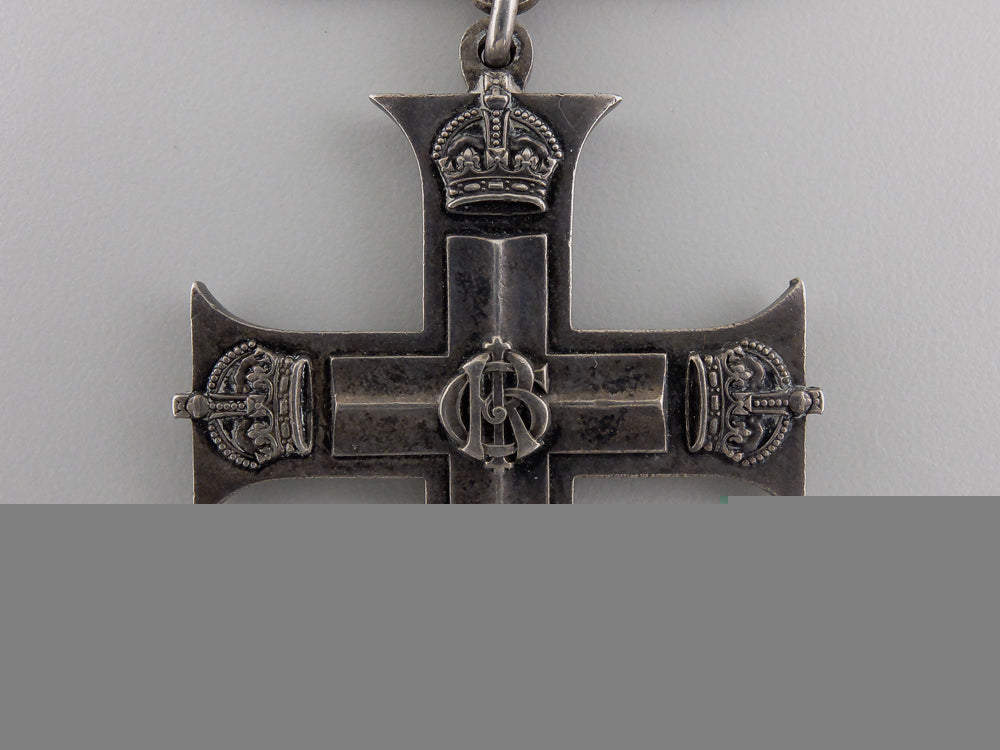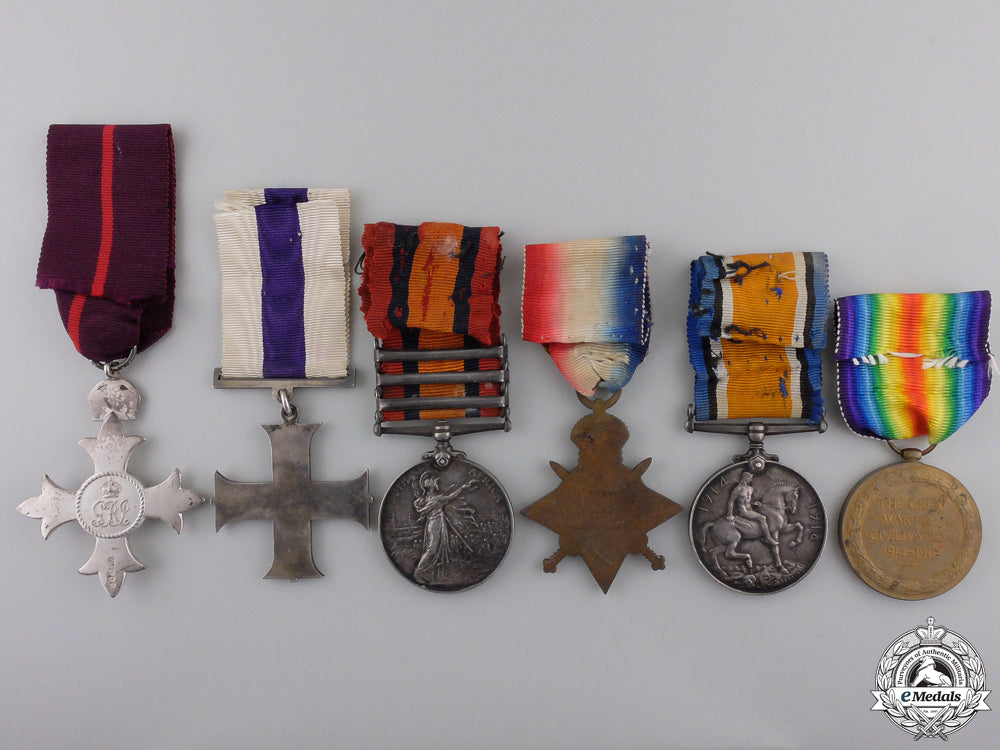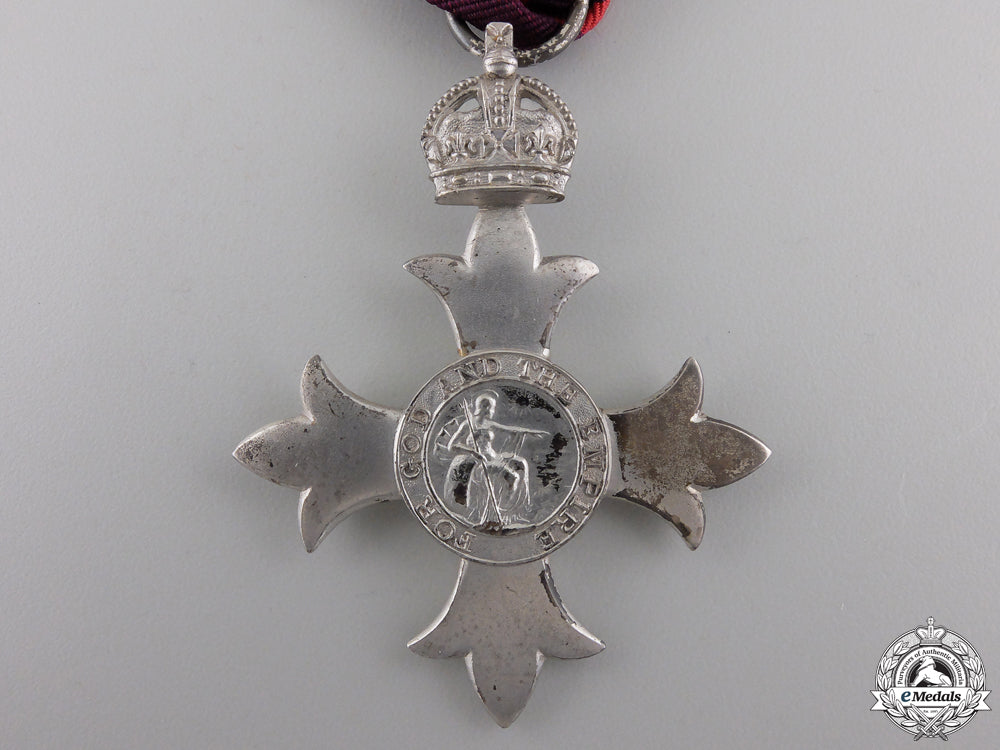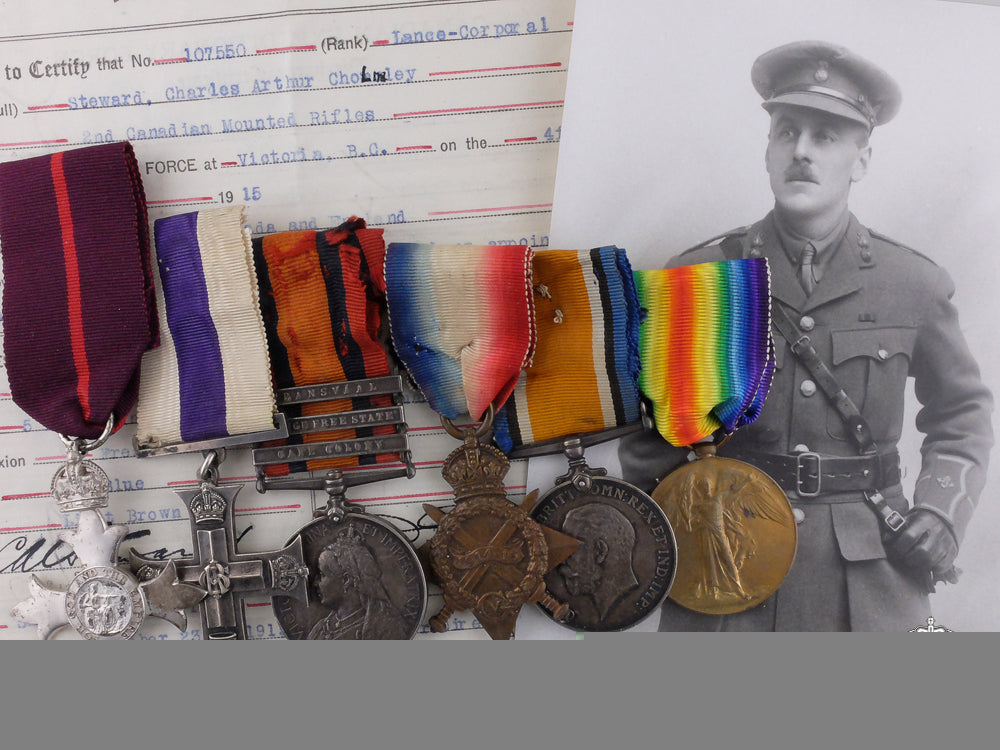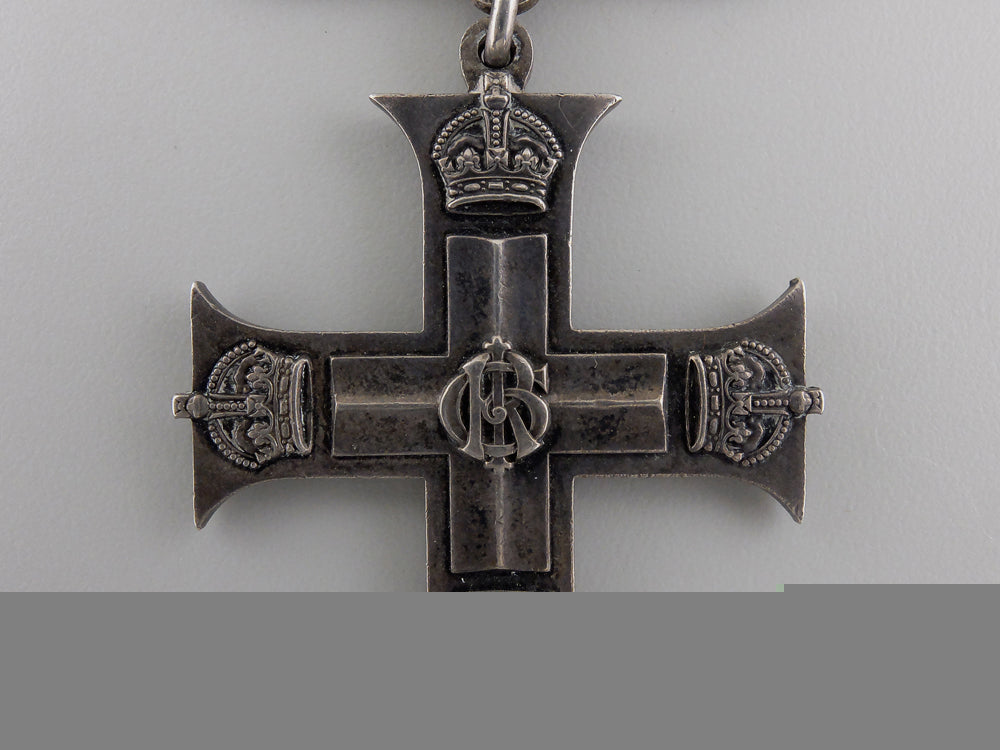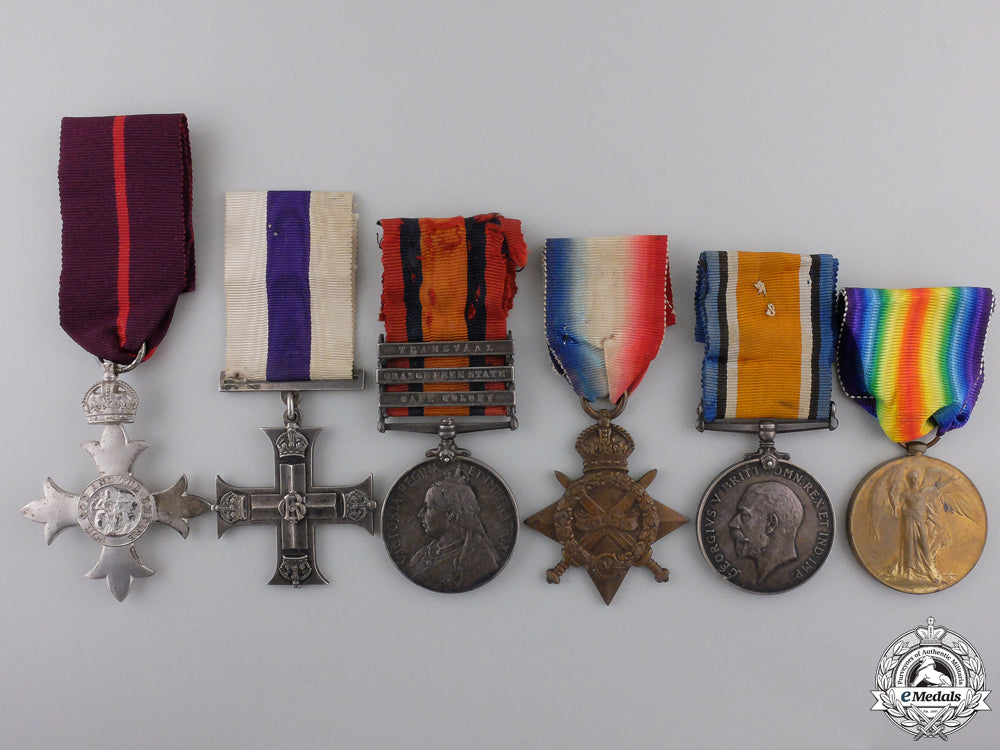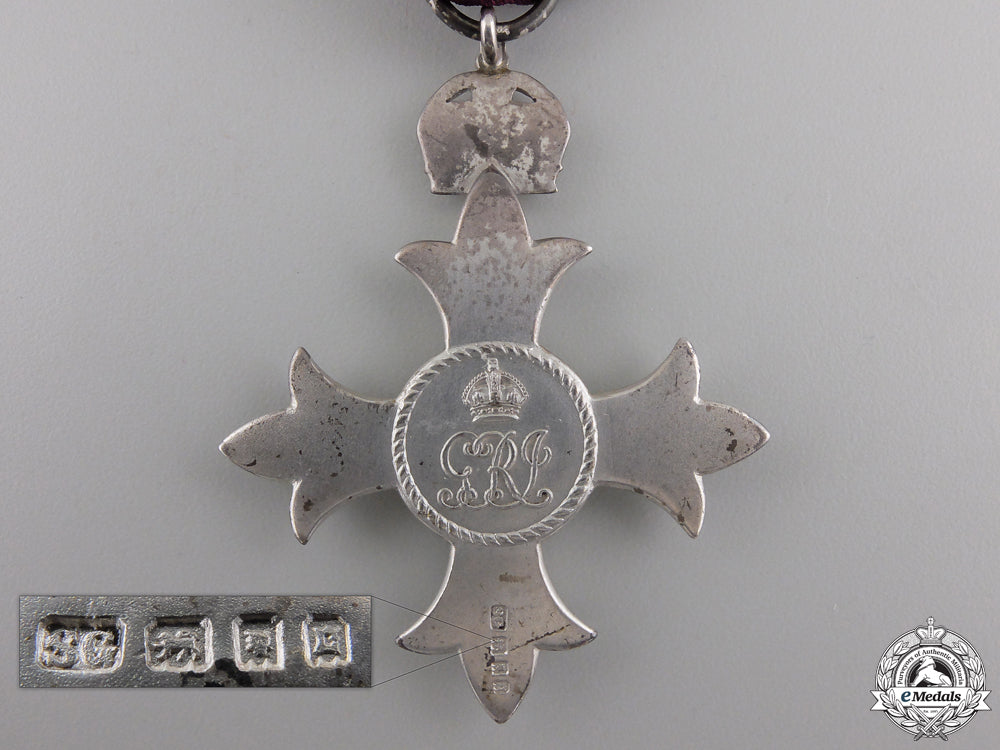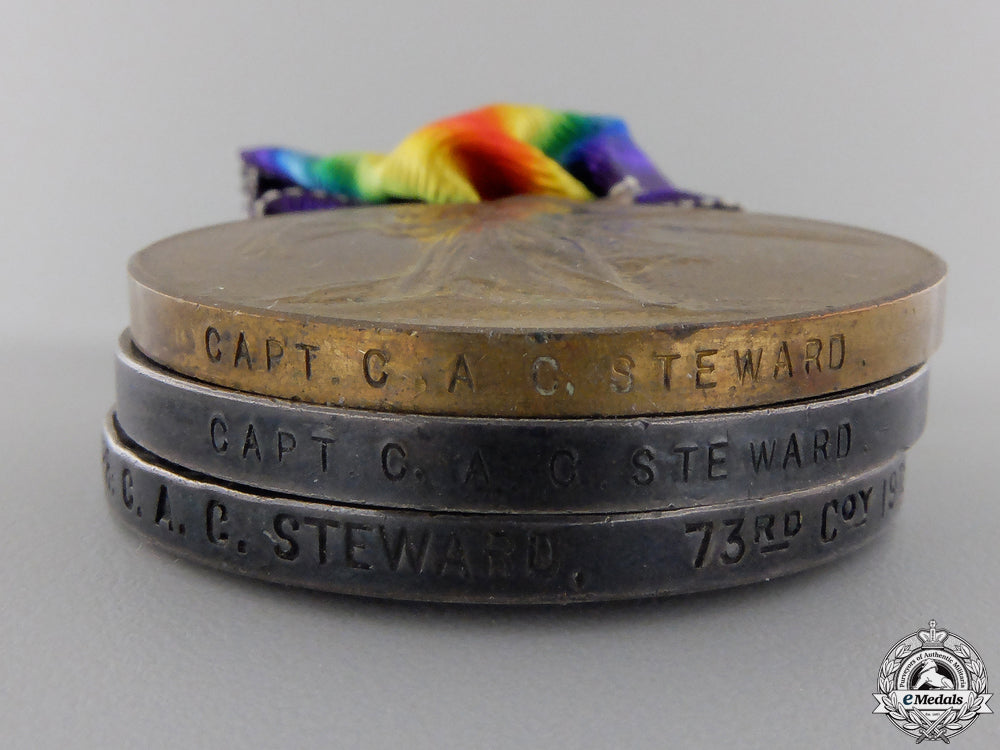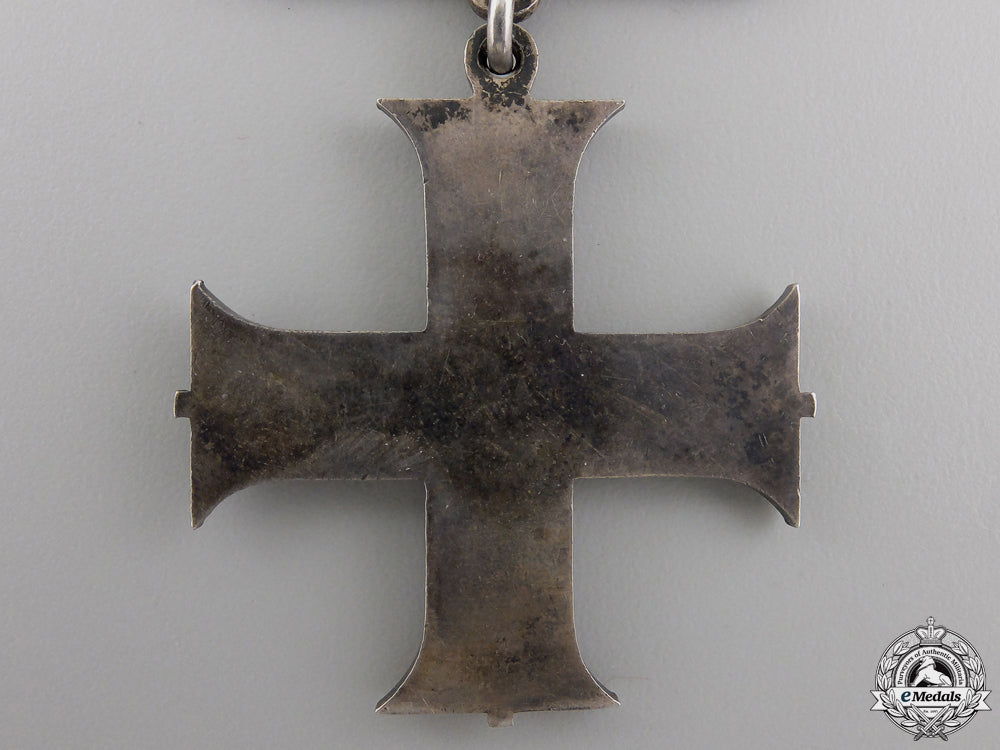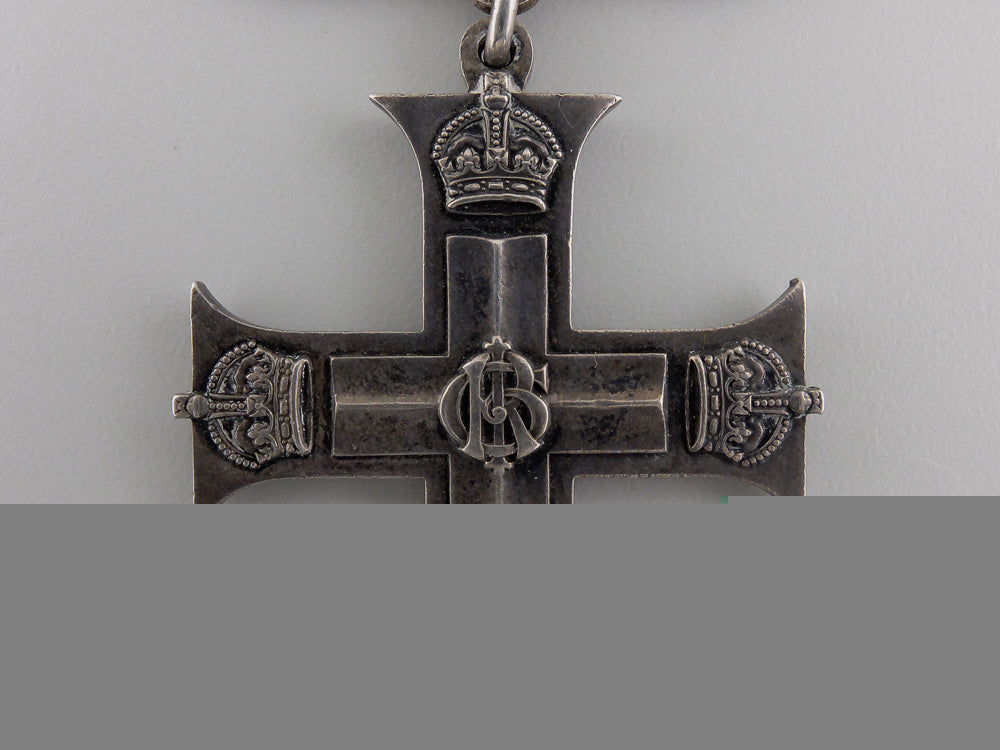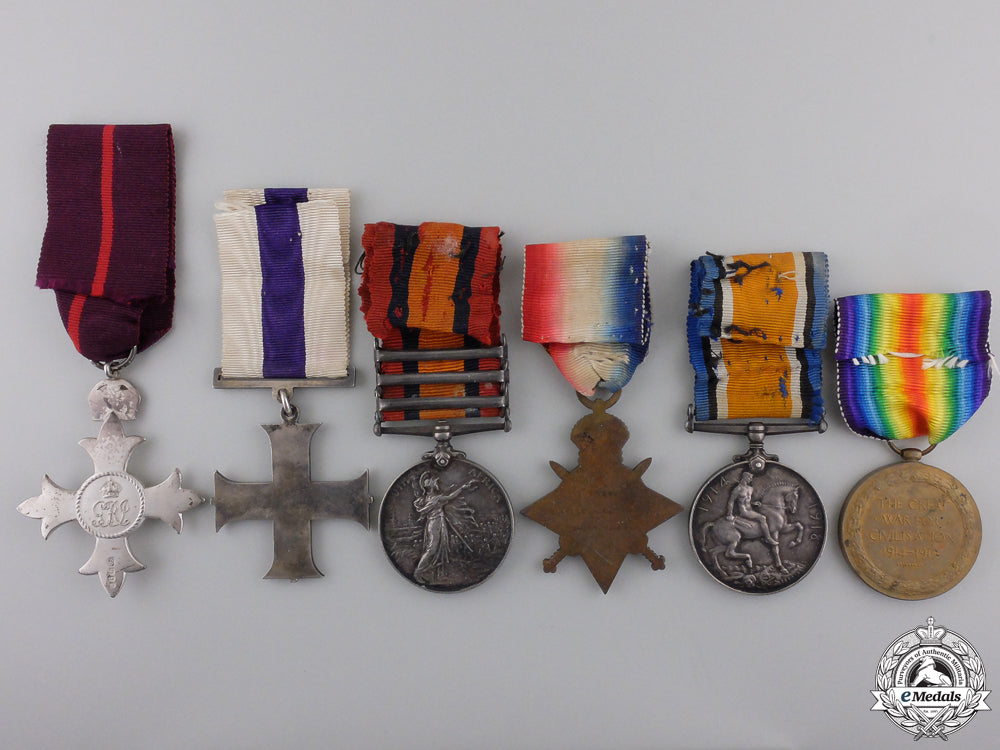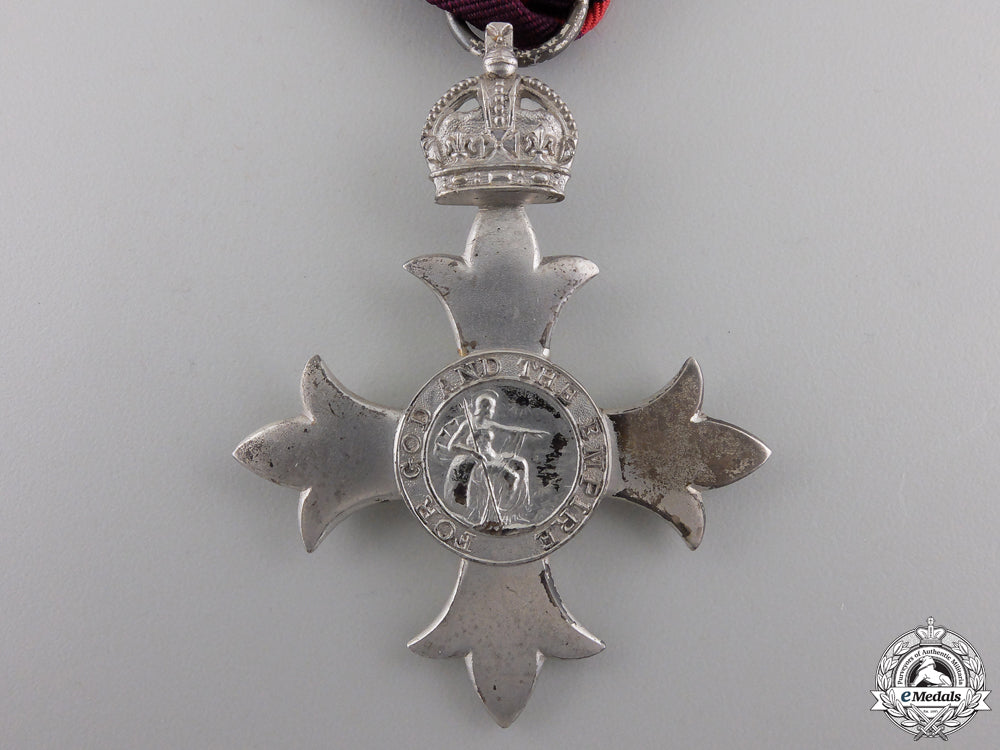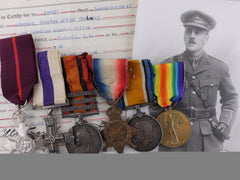Description
A Military Cross Grouping for Distinguished Service in Mesopotamia 1917 - Most Excellent Order of the British Empire, Member (MBE), Military Division (frosted silver, maker marked "SG" (Sebastian Garrard), hallmarked with the British lion, a leopard's head (made in London) and date marked "c" (1918)); Military Cross, George V; Queen's South Africa Medal, 3 Clasps - CAPE COLONY, ORANGE FREE STATE, TRANSVAAL (13484 TPR: C.A.C. STEWARD, 73rd Coy 19th IMP YEO:); 1914-15 Star (107550 L. CPL. C.A.C. STEWARD. 2-CAN.M.RIF.); British War Medal (CAPT. C.A.C. STEWARD.); and Victory Medal (CAPT. C.A.C. STEWARD.). Naming is officially impressed on the QSA and the First World War trio. Un-mounted, original ribbons on the latter three medals, dark patinas on the MC and BWM, pitting on the QSA, contact marks, very fine. Accompanied by his original CEF Discharge Certificate, his Statement of Service in the Canadian Armed Forces, a copy of the Roll of Individuals entitled to the Queen's South Africa Medal (confirming his award of the QSA with three clasps), copies of his CEF Index Cards, Attestation Paper, Service Records, Medical Records, Pay Records and Discharge Certificates, his BEF Service Records, Commission Relinquishing Document and Protection Certificate, various pages from the London Gazette, his London, England Birth Certificate, two Reproduction Studio Portrait Photographs (black and white, one of Steward standing beside a seated Dr. R.B. White, the other of Steward in his BEF Royal Welsh Fusiliers uniform, 127 mm x 179 mm each), five Photocopied Photographs (regarding his life in Penticton, B.C.), along with assorted research papers.
Footnote: Charles Arthur Cholmley Steward was born on February 24, 1874 in London, England, the son of Frederick William Steward and Georgina Steward (nee Rudston-Read). He is listed on the British Census of 1881 as a young boy, age 6, living in Paddington, Middlesex, England and was one of six children of the couple (four daughters, two sons), with Charles being the youngest of the group. His parents were well-to-do, as they were able to employ five servants (Cook, Housemaid, Parlour Maid, Kitchen Maid, Nurse). Steward was educated at Hillside School, Malvern, at The Wyllies, Sussex, at Cuckfield, Sussex and at Mannheim College in Germany. Steward served during the Boer War for one year as a Trooper with the 73rd Company, 19th Battalion, Imperial Yeomanry, "Paget's Horse", raised by Mr. George Paget. For his South African service, he was awarded the Queen's South Africa Medal with three clasps: Cape Colony, Orange Free State and Transvaal. After the war, Steward immigrated to Canada, where he filed a Land Application with the Canadian Government, eventually settling in Penticton, British Columbia and was a pioneer of the Fairview Mining days, along with being an early investor in Penticton real estate. There is a small creek that flows into the larger Penticton Creek, which was originally known as James Creek but when Steward acquired the property after the Boer War, it became known as Steward's Creek. He and his first wife, the former Mrs. Mathias, whose husband died in the fire of the Fairview Hotel in 1905, owned and operated the Penticton Hotel for several years. He also had the first furniture store in Penticton and was to eventually build and run the Empress Theatre. He married Alice Wahrfield, on October 30, 1906, in Vancouver, British Columbia and was the proud owner of a McLaughlin Buick, establishing himself as one of the elite of the town. His skills as a developer in Penticton paid off handsomely in 1911, as a Major Naish bought Steward's five hundred acre property on Penticton Creek, for the sum of $23,000. The cash flow enabled him to buy land for the future Empire Theatre on May 23, 1912, which was followed by his resignation one month later as a Penticton Councillor on June 22nd. Steward held a free Grand Opening of his Empire Theatre onDecember 24th, however, it would later cost ten and twenty cents for admission, not only to see the feature film but also, the weekly serial. Businessmen who wished to advertise on slides in the new Empire Theatre would contact Steward directly. Upon the outbreak of the First World War, Steward enlisted with the 2nd Canadian Mounted Rifles (107550), signing his Attestation Paper on March 4, 1915, at Victoria, British Columbia, naming his next-of-kin as his wife, Mrs. Alice Steward of Penticton, stating that he had one years' previous service with Paget's Horse in South Africa, that he was Married and that his trade was that of Farmer. It was noted during his Medical Examination that he had tattoos on both his left and right arms: his right arm with the regimental badge of the 73rd Company, 19th Battalion, Paget's Horse from his South African experience and his right wrist with a boa constrictor; his left arm with a dragon fish and his left wrist with a flight of birds. The 2nd Canadian Mounted Rifles were organized in Victoria on March 15, 1915. Shortly thereafter, while serving at Shorncliffe, England, he was promoted to Lance Corporal on September 11, 1915 and was qualified three days later as a Bomb Thrower on September 14th. Steward was slated to embark for the French theatre with the rest of the 2nd Canadian Mounted Rifles on September 22, 1915 but remained in England, as he was chosen to join the 3rd Battalion, Royal Welsh Fusiliers as a 2nd Lieutenant, the announcement appearing in the Third Supplement to the London Gazette 29315 of Friday, October 1, 1915, on Monday, October 4, 1915, page 9746. He was officially discharged from the Canadian Expeditionary Force in the rank of Lance Corporal, on October 23, 1915, at Shorncliffe, England, at the age of 41, upon receiving his commission in the British Expeditionary Force (Imperial Army). Steward enlisted with the Royal Welsh Fusiliers and was placed on the Special Reserve of Officers, then promoted to 2nd Lieutenant (on probation) and was confirmed in that rank, the announcement appearing in the London Gazette 29625 of Friday, June 16, 1916, page 5959. He appears to have been in India, as he is documented as having embarked Bombay for Basrah (Basra), Mesopotamia, on August 6, 1916, arriving on the 12th, where he joined the Mesopotamian Expeditionary Force. While in the Mesopotamian theatre, 2nd Lieutenant Steward, Royal Welsh Fusiliers, Special Reserves was awarded the Military Cross, the announcement for his awarding of the Military Cross appeared in the Fourth Supplement to the London Gazette 29990 of Tuesday, March 16, on Saturday, March 17, 1917, page 2721: "His Majesty the KING has been graciously pleased to approve of the undermentioned Honours and Rewards for distinguished service in the Field, in Mesopotamia". His announcement and citation for the award appeared in the Fourth Supplement to the London Gazette 30036 of Tuesday, April 24, 1917, on Thursday, April 24, 1917, page 3938: "His Majesty the KING has been graciously pleased to confer the Military Cross on the undermentioned Officers and Warrant Officers in recognition of their gallantry and to duty in the Field.", awarded "For conspicuous gallantry and devotion to duty. He took command of a bombing party, and pushed forward with great determination. Although wounded in the head and rendered unconscious for a time, he stuck to his duty for nearly twenty-four hours until all the points had been made good." He was named a Regimental Transport Officer, with his vice Lieutenant Bowen Jones to be in command of "B" Company, on April 20, 1917. As a member of the Regular Forces, 2nd Lieutenant Steward was promoted to Temporary Lieutenant, the announcement appearing in the Supplement to the London Gazette 30370 of Tuesday, November 6, 1917, on Wednesday, November 7, 1917, page 11536, followed by a promotion to Lieutenant while with the Special Reserve of Officers, Reserve Units, the announcement appearing in the Second Supplement to the London Gazette 30371 of Tuesday, November 6, 1917, on Thursday, November 8, 1917, page 11554. He ceased to perform the duties of a Regimental Transport Officer on proceeding to 13 Division Headquarters, where he assumed the duty of an Assistant Provost Marshal on December 21, 1917. In the rank of Assistant Provost Marshal, he was transferred the General List and was promoted to Temporary Captain, effective December 21, 1917, the announcement appearing in the Supplement to the London Gazette 30641 of Friday, April 19, 1918, on Saturday, April 20, 1918, page 4788. After almost six months, Steward left 13th Division Headquarters, on June 13, 1918, to proceed on leave to India, embarking Basrah (Basra) on the 29th and returning from leave on August 21st, where he rejoined 13th Division Headquarters. Upon the ceasing of hosilities, he was with the 8th Battalion, Royal Welsh Fusiliers when he embarked Basrah (Basra), bound for the United Kingdom aboard the H.T. Franz-Ferdinand, on January 30, 1919 for demobilization and was struck off strength of the Mesopotamian Expeditionary Force. He arrived at Folkestone, England on March 31, 1919, where he reported to the Deputy Provost Marshal at 3rd Army Headquarters, as a Deputy Assistant Provost Marshal and was graded Class "FF", on April 1st. He eventually did get to France, in the capacity of a Deputy Assistant Provost Marshal of the Avesnes (France) Sub Area (No. 3), reporting for duty on June 15th, and later, a Deputy Assistant Provost Marshal of the Amiens Sub Area on July 7th. Lieutenant Steward was appointed Temporary Captain, effective May 25, 1919, the announcement appearing in the Fifth Supplement to the London Gazette 31661 of Tuesday, November 25, 1919, on Thursday, November 27, 1919, page 14658. Temporary Lieutenant (Temporary Captain) Steward, 3rd Battalion, Royal Welsh Fusiliers, was awarded the Most Excellent Order of the British Empire, Member (MBE), Military Division, as were a number of others, the announcement appearing in the Ninth Supplement to the London Gazette 31374 of Friday, May 30, 1919, on Tuesday, June 3, 1919, page 6963: "The KING has been graciously pleased, on the occasion of His Majesty's Birthday, orders for the following promotions in and appointments to the Most Excellent Oder of the British Empire for valuable services rendered in connection with military operations in Mesopotamia." He relinquished his appointment, the announcement appearing in the Second Supplement to the London Gazette 31541 of Friday, September 5, 1919, on Saturday, September 6, 1919, page 11323. Steward was appointed Deputy Provost Marshal at the Demobilization Pool, where he proceeded to Rouen for temporary duty with the Assistant Provost Marshal, Dieppe District, on October 27, 1919. He was appointed Deputy Assistant Provost Marshal, Class "FF" and promoted to Temporary Captain, which was brought to the attention of Headquarter Units, effective May 25, 1919, as noted in the London Gazette on September 22, 1919 and effective May 1, 1919, as noted in the London Gazette on October 31, 1919. He proceeded to England for demobilization on February 6, 1920, relinquishing the rank of Temporary Captain, effective February 7, 1920, the announcement appearing in the Third Supplement to the London Gazette 31805 of Tuesday, March 2, 1920, on Wednesday, March 3, 1920, page 2727, and was officially demobilized at the Repatriation Camp at Winchester, England on March 18, 1920. While serving with the 3rd Battalion, Royal Welsh Fusiliers, Steward was awarded the Most Excellent Order of the British Empire, Member (MBE), Military Division, the Military Cross, the British War Medal and the Victory Medal, all of which were issued by the British forces. The 1914-15 Star was issued to him as a member of the 2nd Canadian Mounted Rifles, Canadian Expeditionary Force. He relinquished his commission, effective April 1, 1920 and was granted the rank of Captain, the announcement appearing in the Supplement to the London Gazette 31912 of Friday, May 21, 1920, page 5819. A later announcement appeared in the Third Supplement to the London Gazette 32031 of Tuesday, August 24, 1920, on Thursday, August 26, 1920, page 8783, that he had been "granted temporary rank whilst holding appointment in India whilst Assistant Provost Marshal", effective December 21, 1917. Steward returned to Penticton after the war, where in 1924, the town saw the completion of the Provincial Government building, from which the Southern Okanagan Lands Project was administered from under the supervision of six managers, one of which was Steward. Four years later, his wife, Alice Steward, passed away on July 14, 1928, in Penticton, British Columbia, at the age of 57. Charles Arthur Cholmley Steward died on December 7, 1949, in Oliver, British Columbia, at the age of 75. (C:36)


